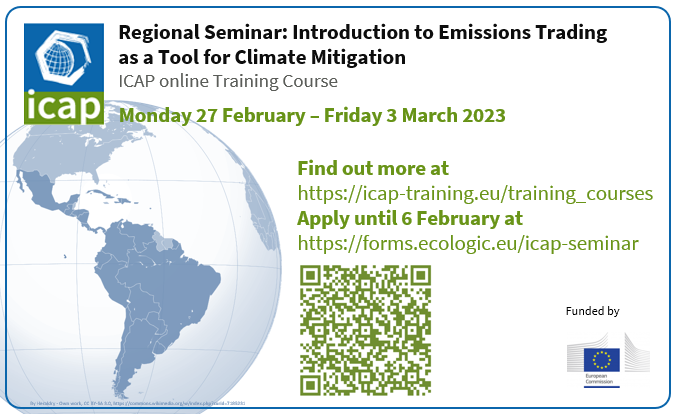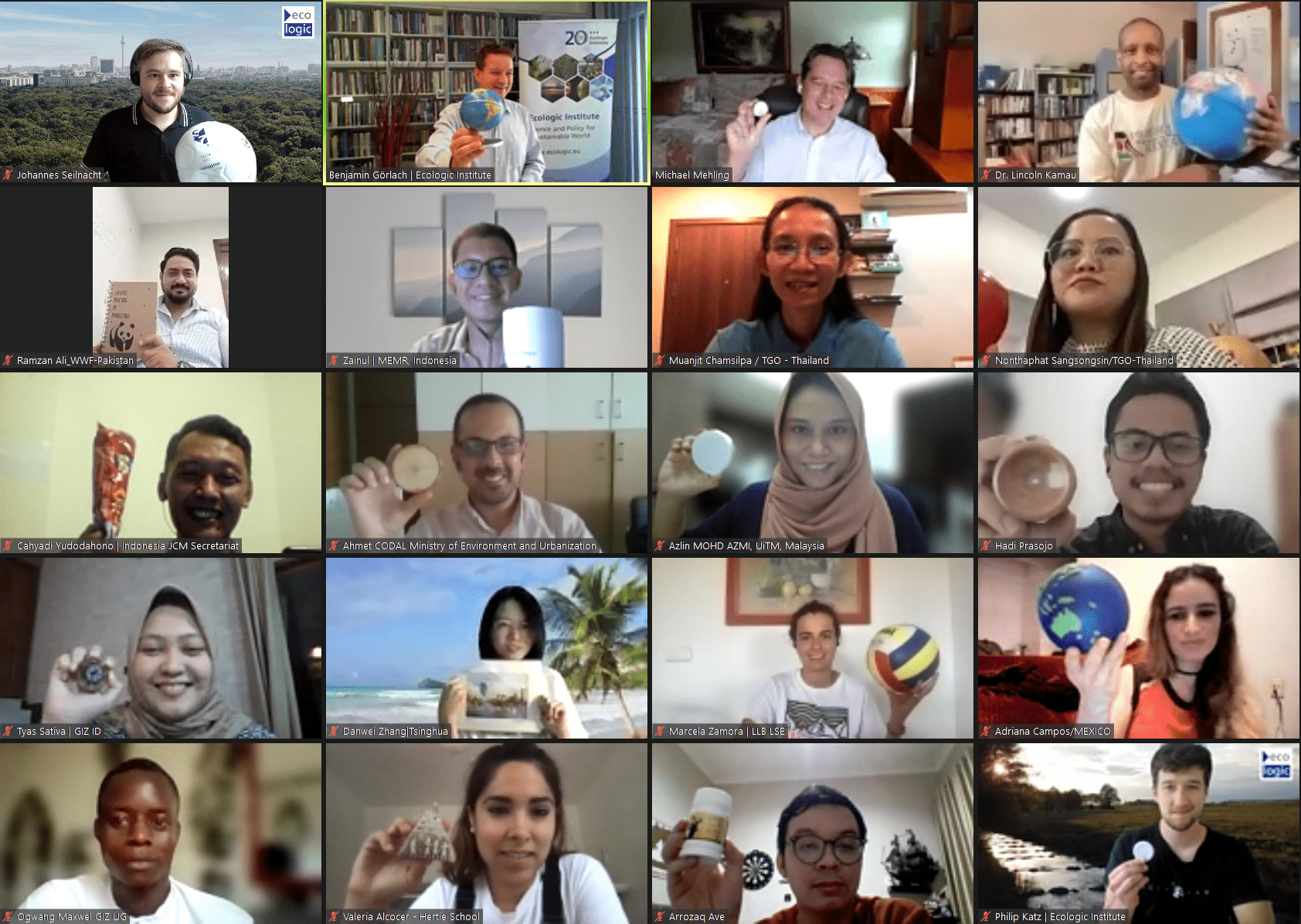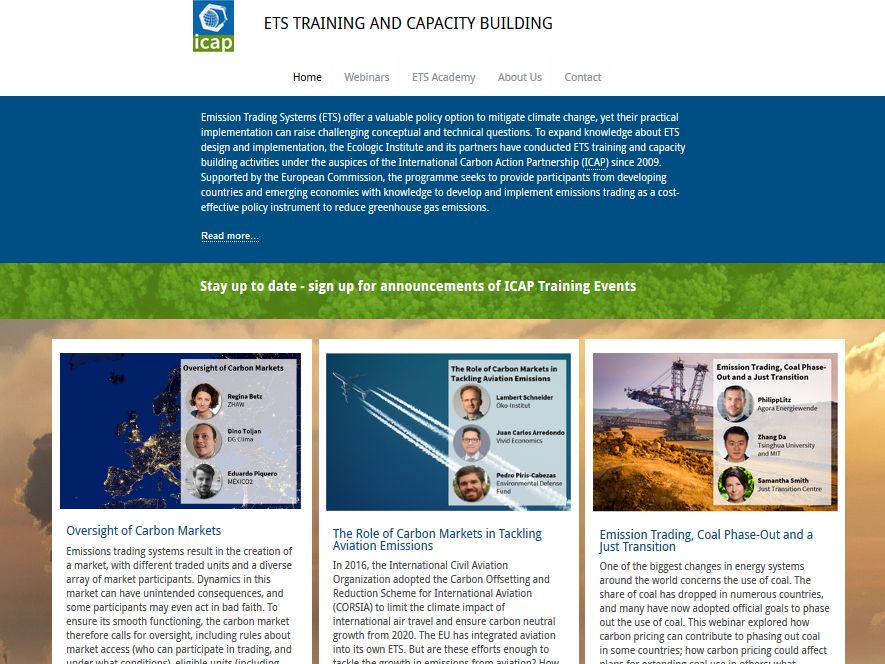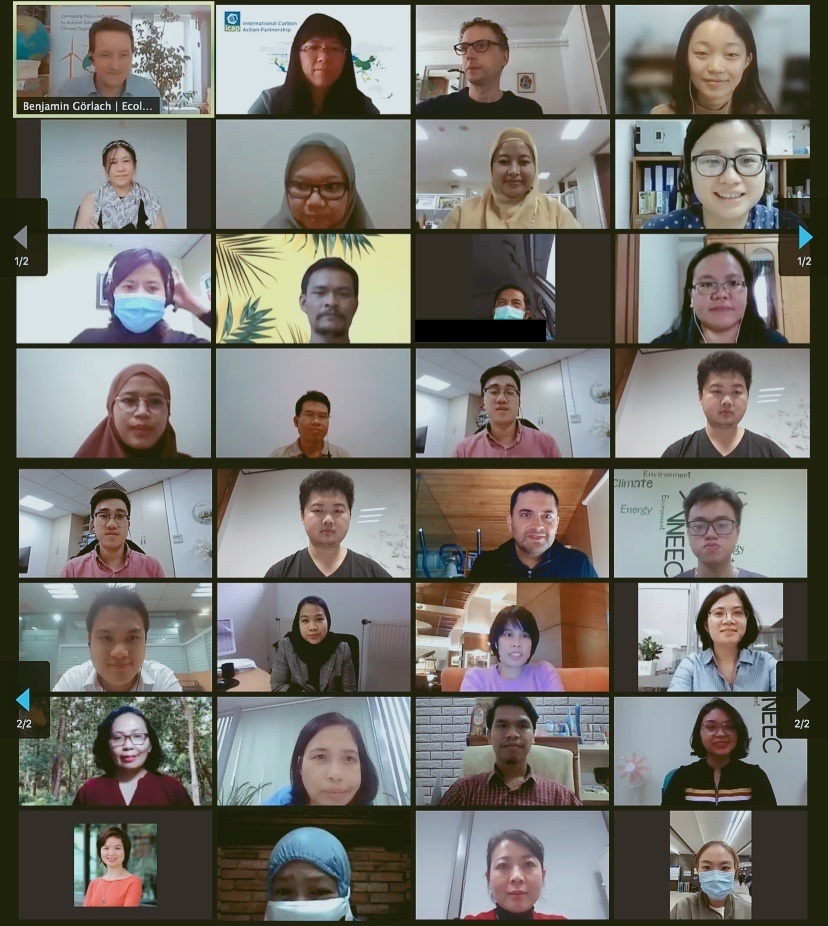ICAP Online Training Course on Emissions Trading
Regional Training Course for participants from the Asian Region
- Event
- Date
-
-
- Location
- online
Emissions trading is a market-based instrument for climate change mitigation. From the EU to South Korea and from China to California, more and more jurisdictions around the world use emissions trading as a tool to achieve their climate goals. At the beginning of 2022, around 16 percent of global greenhouse gas emissions are covered by emissions trading systems (ETS). Several countries in Asia have taken steps towards developing ETS such as Malaysia, Indonesia, Vietnam and Thailand.
From 16 to 26 May 2022, the International Carbon Action Partnership (ICAP) will convene a two-week ETS training course to provide basic training on emissions trading in Asian countries. Over two weeks consisting of eight course days, participants will learn the basic concepts and key elements of emissions trading through a mix of presentations from expert speakers and policy practitioners as well as interactive activities. Each session will draw on examples and experiences from existing ETS to explain the main design choices for setting up new ETS and to convey solutions for their implementation.
Participation in the training course is open to anyone with an interest in, or professional link to, climate policy and carbon market development in Asian countries. Applications are welcome from Central, East, South and South-East Asian countries. Applications are open to both participants with little previous knowledge as well as those with some prior knowledge, including alumni of previous ICAP training activities.
The training course is aimed at 35 participants.
Format
The Online ETS Training Course consists of eight course days across two weeks, running from Monday to Thursday for each. Each course day features a main session of 3.5 hours that takes place in the afternoon / early evening local time in Asia (European morning).
The main session consists of two substantive sessions of 60 Minutes each, with input from the consortium team as well as practitioners from the ICAP Member jurisdictions, each followed by a 15-minute break. The third 60-minute session would typically be reserved for an interactive activity.
On six of the eight course days, the main session is complemented by another 90-minute slot in the Asian morning, alternating between the carbon trading simulation game (CarbonSim) and group work.








